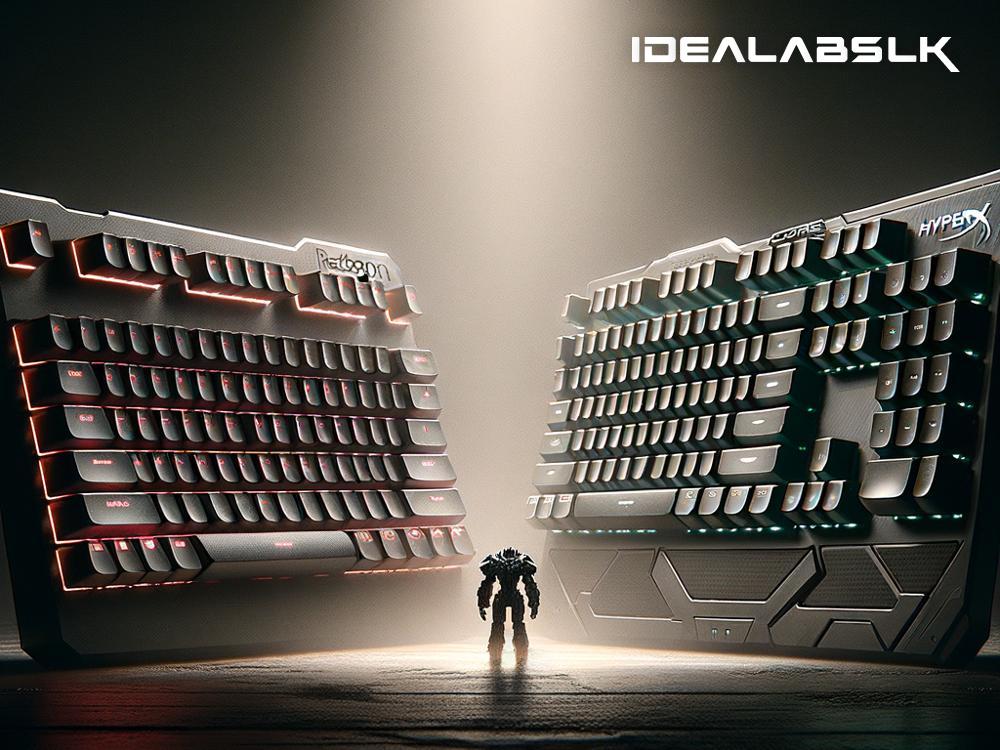Budget Gaming Keyboards Showdown: Redragon K552 vs. HyperX Alloy Core
In the world of PC gaming, having the right keyboard can make a huge difference. It’s your main tool of interaction, whether you're casting spells, shooting zombies, or sprinting to the safe zone. But, not everyone is ready to drop a small fortune on gaming peripherals. That's where budget gaming keyboards come in, offering a balance between performance and cost. Today, we're diving into a showdown between two popular contenders: the Redragon K552 and the HyperX Alloy Core. Let's find out which one gives you the best bang for your buck.
Design and Build
Starting with the Redragon K552, it's a compact mechanical keyboard without a number pad, making it a great choice for gamers with limited desk space. It's built tough, with a metal frame and high-quality plastic that can take a lot of punishment. Its standout feature is the red LED backlighting, which not only looks cool but is also practical, making it easy to game in the dark.
The HyperX Alloy Core, on the other hand, is a membrane keyboard, meaning it uses a different technology under the keys that can sometimes feel softer or less clicky. It sports a full-size layout, including a number pad, and features a sleek, frameless design. The RGB lighting under the keys can be customized in zones, offering a variety of colors and effects to match your gaming setup or mood.
Performance and Features
When it comes to performance, the Redragon K552 impresses with its mechanical switches that are tactile and responsive. This is especially important in fast-paced games where every millisecond counts. The keys are durable, too, rated for up to 50 million clicks. Customization options are a bit limited, though, as you're stuck with red backlighting and no software to tweak settings or macros.
The HyperX Alloy Core's membrane keys provide a quieter typing experience, which might be preferable for shared spaces. Although the response time can feel a tad slower than mechanical switches, it's still quite good for a membrane keyboard. This model excels in customization, thanks to its dedicated media keys and the ability to set up lighting effects without needing additional software.
Comfort and Usability
Both keyboards are designed with ergonomics in mind, but they cater to different preferences. The Redragon K552's compact size means it's great for users who don't use the number pad and prefer more mouse room. However, some might find the mechanical switches a bit tiring over long gaming sessions due to their higher actuation force.
The HyperX Alloy Core is arguably more comfortable for marathon gaming, thanks to its softer key presses and the inclusion of a detachable wrist rest. The full-size layout also makes it a better option for those who do a lot of typing or need quick access to the number pad.
Price Point
Perhaps the most critical factor for budget-conscious gamers is the price. Both the Redragon K552 and the HyperX Alloy Core are priced affordably, though the Redragon often comes in slightly cheaper. The difference in cost can be a deal-breaker for some, especially when you consider the mechanical vs. membrane debate and what each individual gamer prefers.
Conclusion
Choosing between the Redragon K552 and the HyperX Alloy Core boils down to what you value most in a gaming keyboard. If you're all about the mechanical feel, compact design, and don't mind the lack of customization options, the Redragon K552 is a fantastic choice that won't disappoint. Its robust build and responsive keys are perfect for gamers seeking reliability and performance on a budget.
On the flip side, if you prefer a quieter, softer feel and value customization and comfort over the tactile response of mechanical switches, the HyperX Alloy Core is the way to go. Its full-size layout, customizable RGB lighting, and additional features like media controls make it a versatile option for both gaming and general use.
Ultimately, both keyboards offer great value for their price points. Your final choice should align with your gaming style, desk space, and whether you lean towards the clicky satisfaction of mechanical keys or the smooth, quiet operation of a membrane keyboard.

